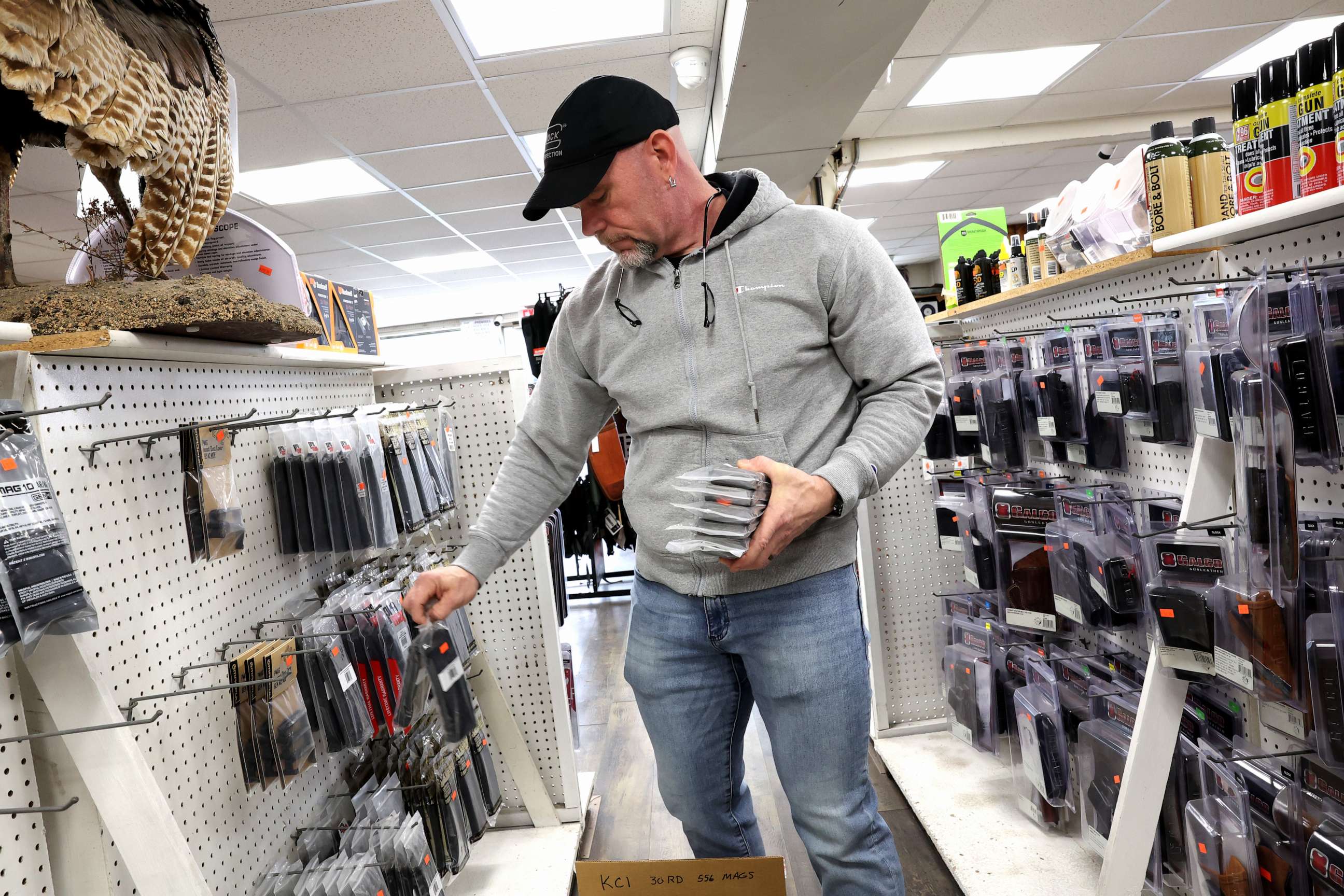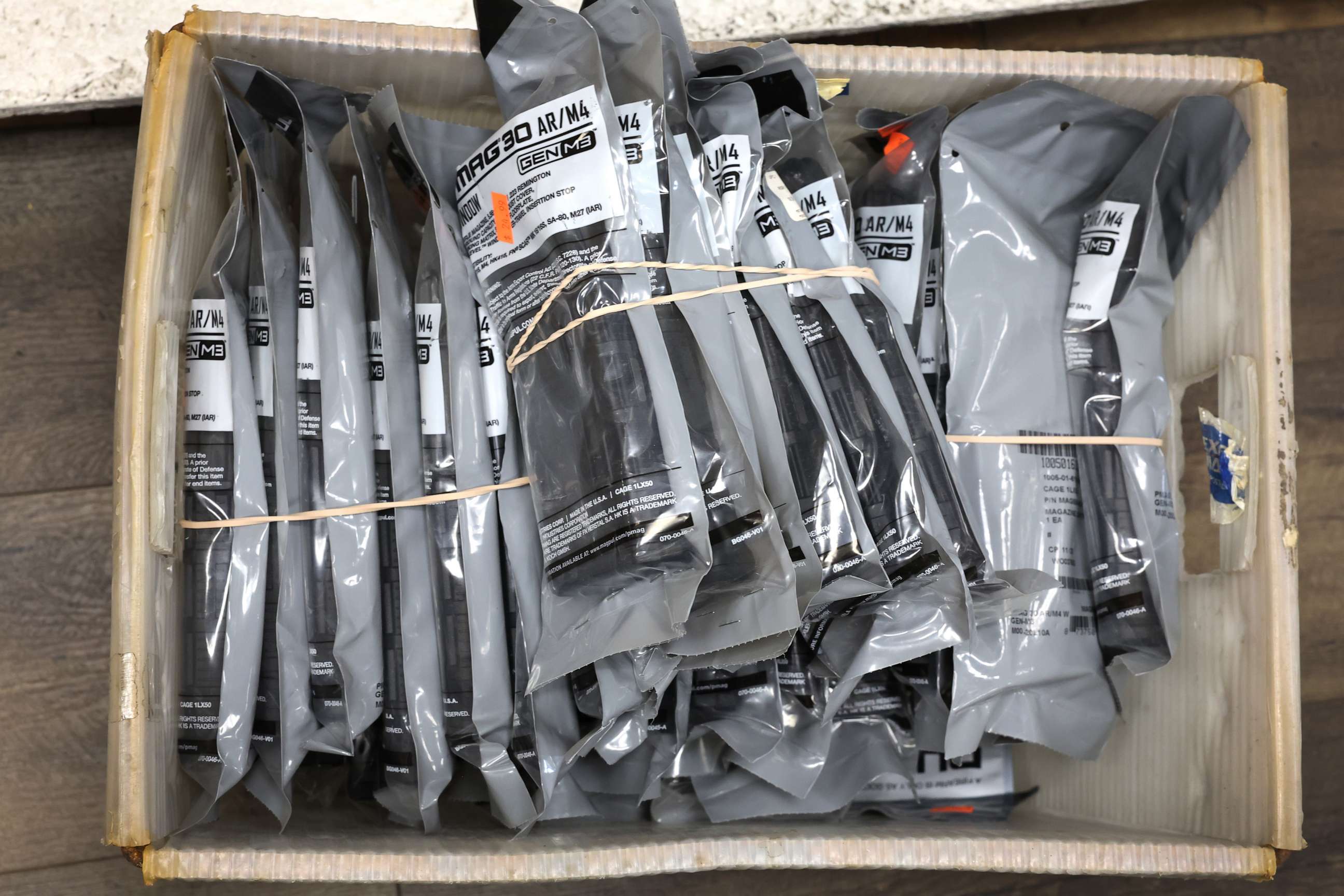At least 74 Illinois sheriff’s departments vow to defy state assault weapons ban
The sheriffs say they believe the law violates the Second Amendment.
Just days after Illinois became the ninth U.S. state to ban assault rifles, the state already hit a roadblock to implementing the law: defiant sheriff's offices.
At least 74 Illinois sheriff's departments have publicly vowed to defy elements of a recent gun-control law signed by Gov. J.B. Pritzker, which banned assault weapons, high-capacity magazines and switches. The offices have vowed to not check if weapons are registered with the state or house individuals arrested only for not complying with the law.
As the number of uncooperative sheriff's offices increased, Pritzker has made his own vow – to ensure those members of law enforcement who fail to "do their job… won't be in their job."

The Illinois Sheriffs' Association issued a statement Wednesday expressing continued opposition to the law. Simultaneously, dozens of sheriff's offices began to post nearly identical messages promising they would not check for compliance with the law or arrest offenders of the law.
Jim Kaitschuk, executive director of the Illinois Sheriffs' Association, said he drafted the statement which sheriff's offices began to sign or modify.
"Therefore, as the custodian of the jail and chief law enforcement official for DuPage County, that neither myself nor my office will be checking to ensure that lawful gun owners register their weapons with the State, nor will we be arresting or housing law abiding individuals that have been charged solely with non-compliance of this Act," DuPage County Sheriff James Mendrick wrote in a statement, which was mirrored by dozens of other offices.
With a population of over 920,000 residents, DuPage County is the largest county to defy the law.
ABC News was able to identify at least 59 sheriff's offices that issued a nearly identical statement, the main identifiable difference between the statements being the letterhead and name of the county in the text of the statement.
In total, at least 74 offices said they plan to not use resources to enforce elements of the law, impacting nearly 4,000,000 Illinois residents, or over 30 percent of the state's residents.
Other than DuPage county, the most populous counties in Illinois – Cook, Lake, and Will Counties – have not issued any statement opposing the law. The deadly 2022 Highland Park parade shooting took place in Lake County, which is enforcing the law. Most of the sheriff's offices opposing the law reside in counties with less than 100,000 residents, though nine defiant counties have populations exceeding 100,000.
Kaitschuk said he disagreed with the idea that sheriffs have an obligation to check compliance with the law or house offenders in their jails.
"That is not a charge that is provided to us, or mandated to us in the bill that passed and was signed by the governor," he said.
Many of the sheriffs defying the law have described their opposition to the law as akin to civil disobedience to protect the Second Amendment.
"We will not be enforcing it in this county; I will also not house anyone in my jail that has violated this act because we know it to be an unlawful act by the general assembly and the governor," Jefferson County Sheriff Jeff Bullard Sr. said in an online video.

Sangamon County Sheriff Jack Campbell, whose jurisdiction covers nearly 200,000 residents, signed a modified version of the statement. In an interview with ABC News, Campbell based his opposition to the law due to both adherence to the constitution and the ineffectiveness of the law.
"The law will have zero impact on the murder rate in the state of Illinois," Campbell said.
Some offices took less defiant stances which include waiting for movement from the courts or legislative action.
"I understand that our nation had witnesses frequent tragedies involving gun violence and I am in no way attempting to minimize the impact these events have had," St. Clair County Sheriff Richard Watson wrote in a statement, in which he said he opposed the law but did not promise to defy it.
When asked why he decided to not enforce the law rather than wait for action from the courts, Campbell returned his belief that the law is unconstitutional and will eventually be struck down.

"Because between now or Tuesday when the bill was signed into law by the governor, how many people can have their constitutional rights violated?" he asked. “And I don’t believe any U.S. citizens should ever have their country’s rights violated at anytime."
Pritzker addressed the defiance, commenting that members of law enforcement who fail to enforce it might lose their job.
"The fact is that yes there are of course people who are trying to politically grandstand, who want to make a name for themselves by claiming that they will not comply," he said. "But the reality is that the state police is responsible for enforcement, as are all law enforcement all across our state and they will in fact do their job or they won't be in their job."
Kaitschuk rebutted the idea that Pritzker has the authority to fire members of law enforcement, especially elected sheriffs.
"I'm just not aware of any provision that provides the governor that opportunity to do so," he said.
Eric Ruben, a law professor at Southern Methodist University and fellow at the Brennan Center for Justice, told ABC News that the public statements made by the sheriffs could significantly impact residents' behavior.
"Even if it's posturing and political, it does send a signal to residents in these communities that they don't have to worry about the law," he said.
Ruben added when sheriffs made public statements about the enforcement and constitutionality of a similar 2013 New York state law requiring the registrations of assault rifles, New York received far fewer registrations than expected, suggesting noncompliance with the law.
"Ultimately, it's not the sheriff's job to decide on the constitutionality of laws," he said. "That's generally something that the courts do."
On Thursday, Pritzker reaffirmed his stance that the sheriff's offices should not be making decisions about which laws to enforce and which to ignore.
"You know, you can have all the resolutions and declarations that you want," Pritzker said. "The reality is that the laws that are on the books, you don't get to choose which ones people are going to follow."
Ruben added that the sheriffs' public statements about checking that residents register their guns could be a "red herring" or distraction since the law does not call on law enforcement to check that citizens register their firearms unprompted.
Pritzker made a similar point on Friday, noting that registering the guns is ” not something that requires the intervention of a sheriff.”
Kaitschuk said the Illinois Sheriffs' Association does not intend to challenge the law in court; however, on Tuesday, the Illinois State Rifle Association declared its intention to go to court.
"Challenge accepted. The Illinois State Rifle Association will see the State of Illinois in court," Richard Pearson, the association's executive director, said.
During a bill signing on Friday, Pritzker remarked he was confident the state law was constitutional.



